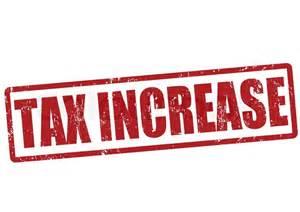
Is a Graduated Income Tax System on Illinois’ Horizon?
If you are a resident of Illinois, you are probably aware that the General Assembly passed a 32% state income tax increase and a 38% corporate income tax increase. What you probably don’t know is this legislation also took the first step towards instituting a graduated income tax in the state of Illinois.
Three new provisions were implemented which are based on personal income. Single filers with incomes exceeding $250,000 and joint filers with incomes exceeding $500,000 will no longer be able to claim personal exemption allowances, the Illinois Property Tax Credit and the K-12 Education Expense Credit. In other words, we now have a system where the more you make, the more you pay – a graduated income tax system. A system that penalizes success and ambition.
It is interesting that these “progressive” elements of the legislation have gotten little to no media coverage. However, I am not surprised. Those who promulgated and passed this legislation do not want to bring this to the public’s attention.
Make no mistake about it, the inclusion of these income based tax increases is a foreshadowing of future tax policy. Unless changes are made in the composition of the General Assembly, graduated income tax rates are next.
If your income exceeds the thresholds outlined above and you are an employee, you may need to adjust your Illinois income tax withholding. If you are self-employed, you may need to increase your Illinois estimated tax payments. Lastly, if you are on the cusp of these income thresholds, you may be able to implement tax planning strategies that could prevent you from exceeding them.

